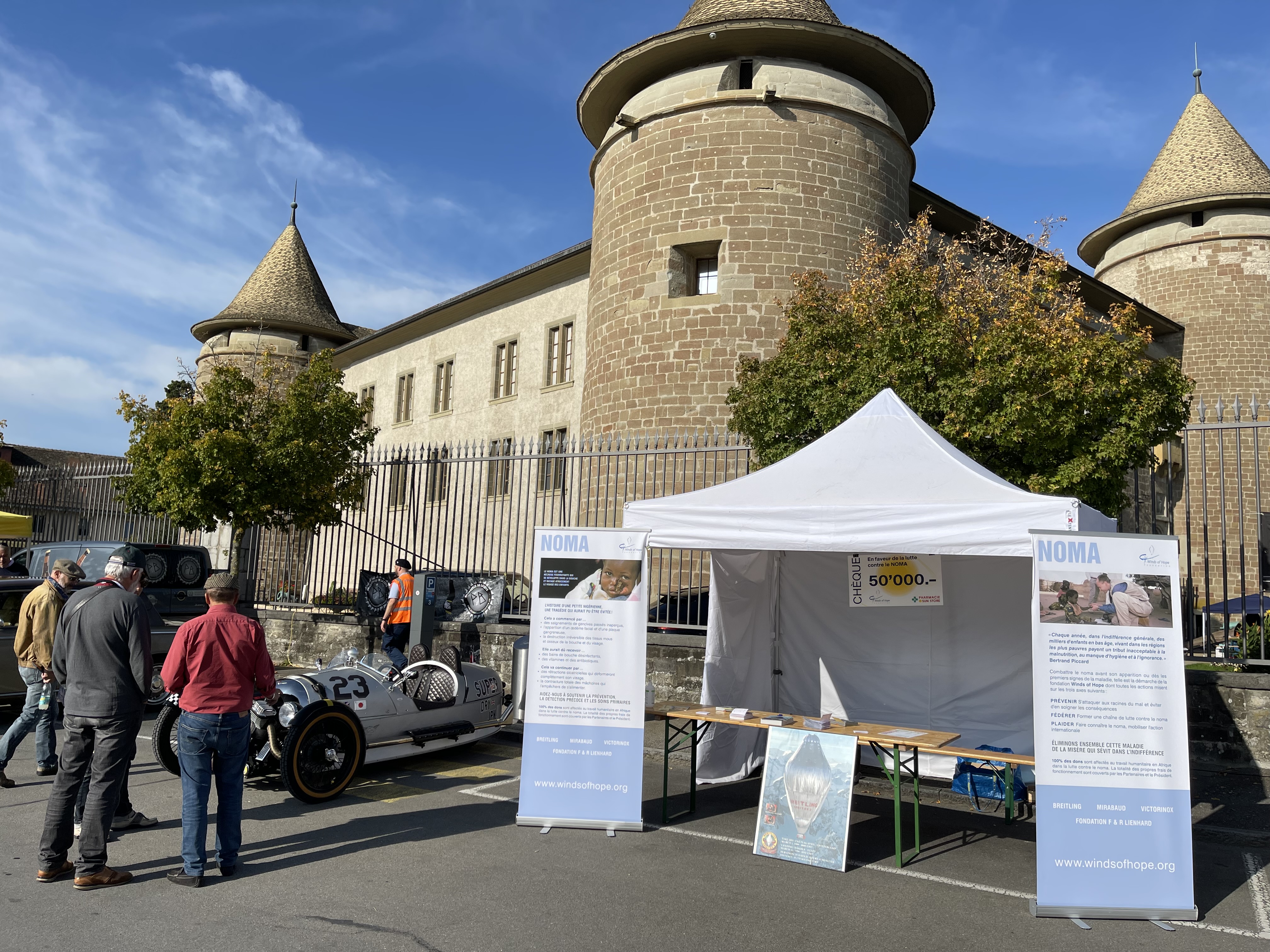International NoNoma Federation

Mission: to pool forces

The International NoNoma Federation was created on 20 March 2003, under the auspices and leadership of Winds of Hope. It aims to unite the efforts of all the bodies actively involved in this battle, with an emphasis on developing synergies both locally and internationally, through information exchange and collaboration.
Since it was founded, the Foundation has taken the chair and, with the help of its Partners, paid for the costs of the organisation.
Its primary mission is to work together in the fight against noma by:
-
proposing common activities and single representation in dealings with health authorities and political bodies, both internationally and locally;
-
informing the public and the media about the need to fight noma;
-
offering its members a common platform of communication using new technologies to improve their operations in the areas of prevention, detection, research, medical and surgical treatment, rehabilitation and social reintegration.
Initially comprising 17 members, including NGOs, associations and foundations, the Federation now has thirty members active in the fight against noma who have decided to work together, in accordance with a code of ethics, to develop synergies. Most of these NGOs have their headquarters in Switzerland or France, but some are also based in Germany, Great Britain, United States, Burkina Faso, Mali, Niger and DR of Congo.
Their areas of intervention in the fight against noma are:
• Prevention, by means of awareness campaigns in villages,
• Training of health-care workers, traditional healers and birth attendants,
• Early detection, via education and training,
• Primary health care in the villages,
• Reconstructive surgery missions and pre-and post-operative treatment,
• Rehabilitation through treatment and appropriate physiotherapy
• The fight against malnutrition,
• Etiological research,
• Epidemiological monitoring
To date, the Federation’s activities fighting noma are conducted primarily in African countries: Benin, Burkina Faso, D.R of Congo, Ethiopia, Guinea-Bissau, Mali, Niger, Togo, Senegal. Because of lack of resources and absence of organizations active in the fight against noma, Asia and Latin America remain neglected for the moment.
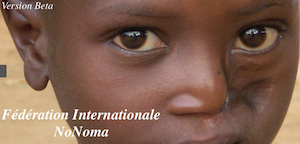
Website of the International NoNoma Federation
If you wish to have more information on the International NoNoma Federation please visit the website of the Federation : www.nonoma.org (available only in french for the moment)
Members
The Federation has three membership categories: active members, associates and partners.
Active members are those that have activities directly related to the disease of noma. They are officially recognized, soundly managed organizations.
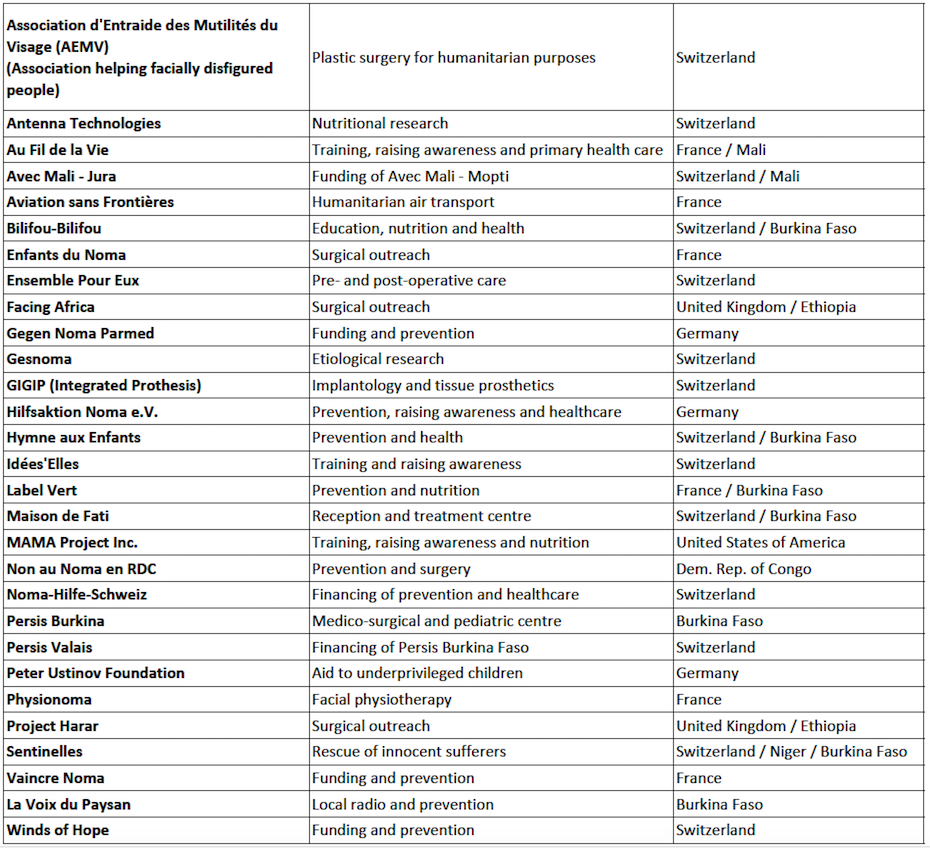
![]()
Associate members are locally-based members that also have activities directly related to noma and which collaborate effectively in the field with active members. Their structure, however is smaller, with a more rudimentary organization.

Partner members are international organizations whose activities are related to the disease of noma. They participate in general meetings and roundtables.

Since 2012, each year, Doctors Without Borders (Médecins Sans Frontières - MSF) joins the discussions of the International NoNoma Federation. The Red Cross has joined the discussions of the Federation in 2015.
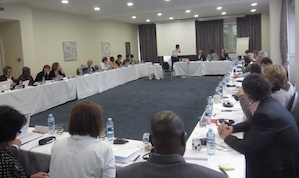
Round Tables
For several years, the Winds of Hope Foundation has been organizing roundtables that bring together organizations fighting noma, to create synergies between them and strengthen the work they all do.
There are now some thirty NGOs represented and participating to the annual round tables.
23-24 September 2016: 14th General Assembly (minutes in french) with 34 associations present, and 15th Round (minutes in french) Table with the presence of Terre des Hommes for the first time. One new active member, With Mali / Jura and one new associate member New Face. Highlights of the meeting: Presentation of the Terre des Hommes mobile health tool; the Médecins Sans Frontières retrospective on their experience and expectations in the fight against noma; the situation report for Niger given by Sentinelles Niger’s responsible person in the field: the laying of the first bricks of the maternity center on the threshold of the Sahel; the key role played by traditional healers in treating noma in Mali.
25-26 septembre 2015: 13th General assembly (minutes in french) with 24 associations present, and 14th round table (minutes in french). participation for the 1st time of the Red Cross and Chaîne de l’Espoir (Chain of Hope). The highlights of the meeting were: the Sentinelles surgical mission at the Persis Center in Ouahigouya; the activities of Sentinelles in Burkina Faso; the project to build a maternity unit at the gates of the Sahel; the evaluation of the impact of traditional healers in noma care in Mali; MSF’s priorities and implementation plans for noma; and the proposals for standard definitions for the stages of noma made by a working group comprising MSF, GESNOMA, Winds of Hope and Sentinelles.
26-27 September 2014: 12th General Assembly (minutes), with 27 associations present, and 13th Roundtable (minutes) with the presence of Médecins Sans Frontières and Mercy Ships. The highlights of this meeting were: The pilot project for political dialogue initiated in Burkina Faso by Winds of Hope; the information poster prepared by MSF identifying the stages of noma, and proposing a treatment protocol for each stage; and the AEMV-HUG mission in Nov-Dec.2013 in Ouagadougou, organized by Sentinelles with PhysioNoma‘s participation.
27-28 September 2013: 11th General Assembly (minutes), with the attendance of 25 associations, and 12th Roundtable (minutes), with the attendance of Doctors Without Borders and Mercy Ships, the recorded noma cases increase in Niger and the surgical treatment of noma at HUG by AEMV surgeons.
28-29 September 2012: 10th General Assembly (minutes), with arecord attendance of 30 associations, and 11th Roundtable (minutes) with the special participation of Jean Ziegler, Vice-Chairman of the Advisory Council for Human Rights, and H.E. Vokouma Prosper, Ambassador of Burkina Faso to Switzerland as well as to the UN in Geneva.
7-8 October 2011: 9th General Assembly (minutes), in which the statutory categories of membership were newly defined, and 10th Roundtable (minutes) featuring the presentation of numerous projects combatting noma, as well as a study assessing the impact of noma surgery sequelae on children's social integration.
1-2 October 2010: 8th General Assembly (minutes), with discussions on a draft of new status, and 9th Roundtable (minutes), with the announcement of the relaunch of the collaboration between WHO and Winds of Hope.
30-31 October 2009: 7th General Assembly (minutes), with the presentations of the first projects funded by the Noma Day, and 8th Roundtable (minutes).
5-6 September 2008: 6th General Assembly and 7th Roundtable.
7-8 September 2007: 5th General Assembly and 6th Roundtable.
8-9 September 2006: 4th General Assembly and 5th Round Table, with the decision to organize the first World Noma Day in 2008.
7-8 September 2005: 3rd General Assembly and 4th Roundtable.
8-9 September 2004: 2nd General Assembly and 3rd Roundtable.
20 March 2003: Creation of the International NoNoma Federation at the 2nd Round Table.
21 March 2002: First International Roundtable bringing together key NGOs fighting noma.
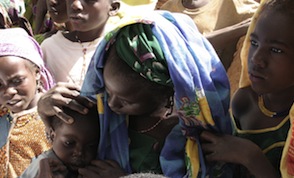
Organizations supported
Winds of Hope Foundation regularly supports several organizations in the NoNoma Federation whose activities against noma are specific and exemplary, so as to reinforce their daily work out in the field.
Sentinelles
Founded by Edmond Kaiser in 1980, the Sentinelles Foundation is dedicated to rescuing innocent young victims, and to combating vigilantly the causes of their suffering. Before this movement alerted the international community, humanity at large had no idea that children whose faces had been devoured by noma were being abandoned to their fate, even though WHO was already fully in the picture. This was originally why Winds of Hope chose to make the fight against noma its favored cause.
Sentinelles looks after the young victims of noma from the moment they are discovered until they can launch themselves on life. Its activities include not only research, identification of cases, medical treatment, and individual, family and social monitoring of each child, but also surgical treatment during outreach missions or in Switzerland, and work in collaboration with physicians, hospitals, social services, and any person who is in a position to provide the child with the supervision and monitoring it needs.
The Association’s program of caring for the treatment of child noma sufferers was launched in Burkina Faso in 1990, and in 1992 in Niger. In 1995, they organized their first surgical noma mission in Niger and built a reception center in Ouagadougou.
After a decade of fruitless appeals to international organizations, including WHO, to undertake a study on the etiology of noma, in 2002 they carried out a research project on noma in Niger in collaboration with the multidisciplinary Gesnoma group from the University Hospitals of Geneva.
In 2005, they organized emergency aid to victims of famine in Niger and built a new reception center at Zinder for children with noma.
Today, there is a team of 9 people in Burkina Faso and 25 in Niger.
Their reception centers in Ouagadougou and Zinder permanently host nearly 20 and 80 children respectively for varying periods, depending on the kind of treatment required by their condition, and the extent to which their family is able to offer the care needed. These are also places for the medical and psychological preparation of children before their departure for treatment abroad, and they facilitate the children’s reintegration once they are back in their country. ''Gingivitis screening'' sessions are also held there for the benefit of the population at large.
To learn more, read the article published in their newsletter of September 2015 entitled: " Personalities declare their support for Sentinelles..." featuring a statement by Bertrand Piccard.
Founded in 2008 at Trient in the Canton of Valais by Dr. Bernard Mivelaz, the Persis Valais association aims, firstly, to initiate, cooperate with and support humanitarian activities and projects, and secondly to raise funds for Persis’ medical, surgical and pediatric Center at Ouahigouya in Burkina Faso.
The association aims to improve the living conditions of the most disadvantaged people in both city and countryside, in the domains of health, education, vocational training and reintegration. This includes providing medical and social care to children suffering from noma and malnutrition.
Located in the northern part of Burkina, Ouahigouya Health Region covers four districts: Djibo, Ouahigouya Seguenega and Titao. Together, these cover a total area of 25,642 km2, comprising 31 departments with a total population of 1,034,000 inhabitants.
Severe malnutrition affects over 40% of children admitted to pediatric wards. A recent study of 1,986 children aged under 36 months in 14 sectors of Ouahigouya shows that 25.2% of children have stunted growth, 6.2% of them significantly so, and 10.2% of children are emaciated, 1.9% to the extent of requiring hospitalization
The epidemiological situation in the region is marked by the predominance of infectious and parasitic diseases, sometimes with epidemic outbreaks (cerebrospinal meningitis, measles, whooping cough, and acute flaccid paralysis). Malaria accounts for one third of curative consultations; respiratory diseases, diseases of the skin, diarrhea and intestinal parasites are the next most frequent.
Short film: “Noma, a disease of poverty”, produced at Dr. Lassara Zala’s Persis Center (Persis Burkina) by North Burkinabe Television in February 2015.
Ensemble pour Eux
Founded in 2006 in Granges-Marnand (Canton of Vaud) by Sylviane and Richard Collomb, the Ensemble pour Eux association aims to initiate, cooperate with and support humanitarian projects in Switzerland and abroad. In particular, it is active in Burkina Faso and Mali to provide pre-and post-operative care during joint surgical outreach missions in association with Children Of Noma, The Thread of Life, Maison de Fati and other members of the NoNoma Federation.
Ensemble pour Eux does not act alone but is a link in a chain of human solidarity, providing pre-and post-operative care, as well as promoting surgical missions and disseminating information to prevent and raise awareness about noma. It provides the staff, medicines and medical equipment, as well as the organization behind these outreach missions.
Pre-operative care includes patient reception; opening and maintaining a case file; carrying out laboratory analyses and radiological examinations preparatory to surgery; patient evaluation; and implementation of the following - care measures; correction of deficiencies; de-worming; the establishment of a good diet; introduction to hygiene; and psychological preparation of patients.
Post-operative care implies making available appropriate medical staff, mostly nurses; the medicines and equipment necessary for the task; the administrative materials needed for the proper functioning of the mission (case notebooks, treatment plan, etc..); monitoring of patients by day and night; follow-up of medical checks and consultations; working with medical teams and all other partners; rehabilitation staff; and monitoring of patients’ hygiene.
The entertainment program is a "plus" that gives a positive dynamic to helping patients overcome pain ... it diverts them. It can reassure, enliven and transform missions ... into something like a summer camp! In close cooperation with the nursing staff, facilitators are active in three areas: fun activities (outdoor games, craft work, singing and drumming etc.); tutoring and literacy (school supplies and drawing materials); and preventative care through good hygiene, in collaboration with nurses and reception staff as well as raising awareness of noma in those who care for children.
In 2009, following the impact made by Noma Day, three missions supporting surgical outreach expeditions were carried out by Ensemble pour Eux (an association that brings together 54 volunteers), one to Mali, and two to Burkina Faso. These enabled post-operative care to be given to 160 children who had been operated on by surgeons from the Enfants du Noma association.
A short film by EPE on the Sentinelles surgical mission in January 2016 conducted by Prof. Brigitte Pittet (AEMV) in Ouahigouya at Dr. Lassara Zala’s center (Persis Burkina).
Physionoma
Established in January 2003, Physionoma is an association that brings together rehabilitation specialists, physiotherapists and speech therapists, both students and professionals, who are motivated by the cause of noma and driven by a common desire to:
• Inform the medical and paramedical professions in Europe about noma
• Rehabilitate noma victims, in collaboration with host NGOs and associations of surgeons in Africa and Europe,
• Train medical teams on site to allow for long-term therapeutic monitoring and wider application of the recommended rehabilitative techniques.
Physionoma was created on the basis of a research paper demonstrating a need for speech therapy in patients who have undergone surgery to correct the sequelae of noma. The first mission organized by the association set out as early as winter 2003, and aimed at offering and implementing rehabilitative programs in a reception center specializing in Noma, run by the NGO Sentinelles at Zinder in Niger.
Every Physionoma mission has the same aim: to carry out intensive rehabilitation sessions for about 15 to 20 patients, as well as training workshops for the on-site health care team, so as to provide diagnostic and rehabilitation tools that can be mastered and used by this team throughout the year. The team of therapists, who work on a voluntary basis, usually comprises two people, including at least one professional.
The greater part of the costs of the mission is absorbed by Physionoma, thanks especially to the help given by Winds of Hope.
This film "Rehabilitation after noma sequelae; The Keys to a Smile" was directed by Lison Amiot in Ouagadougou, Burkina Faso in early 2013 with the participation of Sentinelles and their children, and financing from Winds of Hope. It was selected in the fall 2013 at the Audio-visual Speech-Therapy Festival (Festival audiovisuel d’Orthophonie) in Nancy and the Lights of Africa Festival (Festival Lumières d'Afrique) in Besançon (France).






